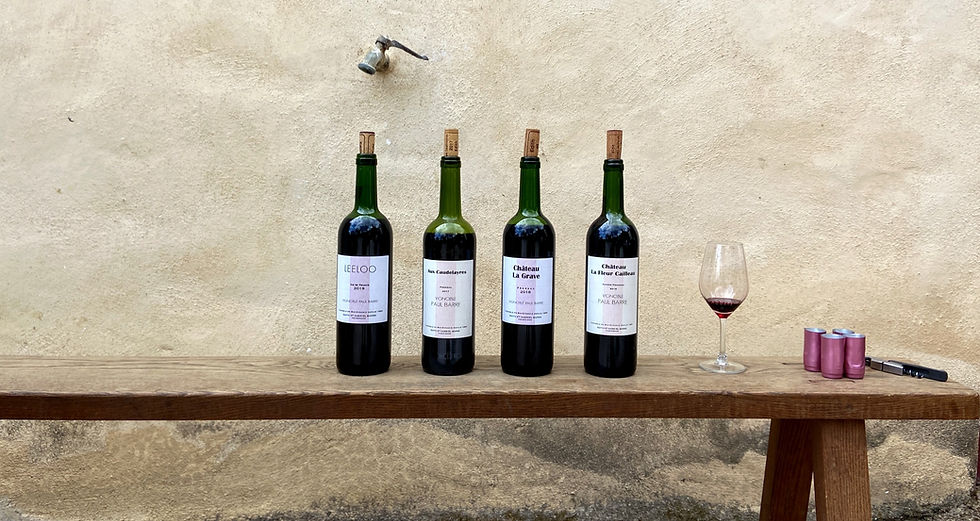CELLART's tips & tricks: how to choose a wine (2/6)
- Kieran Ferragu
- 24 nov. 2021
- 2 min de lecture
Tip 2/6 : Use your memory and challenge your brain
Choosing a wine can sometimes be tricky when you are facing a shelf of dozens and dozens of bottles with different labels from all over France (or even from abroad).
Luckily, CELLART is here to help you. In this series dedicated to the choice of wine, we will give you some expert advice on how to choose your next bottle!

Think about the wines you have enjoyed in the past also helps to sharpen your tastes and assess your level of curiosity. Without repeatedly picking the same wine or curbing your curiosity, it can be interesting to record your past tastings in a small notebook.
The most important thing to remember here is what you liked about a particular wine, rather than the wine itself, as this would give little indication of your preferences because of the variety of wine styles within the same region or appellation.
For example, if you like the crispness of a Riesling, the fruity and juicy character of a Beaujolais, the tannins and the structure of a Bordeaux or the smoothness of a white Burgundy, write it down in a notebook or keep it in your mind. When you choose a wine, you can then assemble the pieces of the puzzle to draw up a sketch of the wine you are likely to enjoy. And the more pieces you have, the clearer the picture will be.
If you have a visual memory, feel free to take pictures of the last wines you tasted with your friends or family. These pictures can be saved in an album on your phone (Google Photos automatically recognises bottle images by the way) and will give useful clues for recommending you a wine according to your tastes and preferences. Moreover, the pictures of tasted bottles can remind you of good moments, or even surprise you if other bottles came before them and your memories became blurry at the end of the evening.
Finally, exercising one's memory also means sharing. If you liked a wine, talk about it, try to describe it to your friends and family and make sure you taste it again some time later to confirm or reject your initial assessments.
On the other hand, even if it is pleasant to taste wines that you like, we strongly advise you to challenge yourself, to experiment with your tastes and to dare to question your preferences.
So stay curious and let yourself be surprised, you always have good surprises ahead of you!